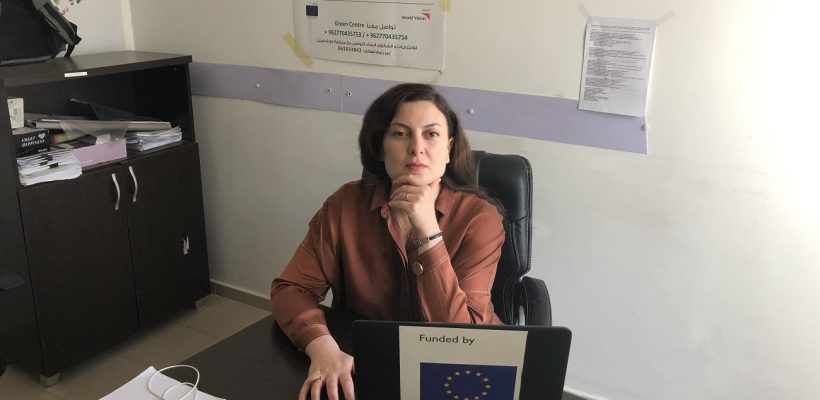
Alumni Success Story: Hasmik Kocharyan (MPH ’99) Shares her Story of Working with Oxfam and World Vision
3 min readComing from a family of medical doctors, Hasmik Kocharyan (MPH ‘99) decided to serve in the humanitarian field. Her career choice led her to managerial positions with Oxfam, Positive Planet, the Danish Refugee Council (DRC) and World Vision. In the interview below, Kocharyan recounts the impact AUA has had on her career and shares her experiences working with refugees, the challenges and rewarding moments in her journey, and much more.
Tell us about your background, such as your family background and where you come from.
I am from Yerevan, Armenia. I graduated from the Faculty of Pharmacy at Yerevan State Medical University. Most of my family members are medical doctors. It seems that I am the only one in my entire extended family, that preferred working for nonprofit organizations, particularly in the field of providing humanitarian response and protection over building a career in the medical sector.
Tell us about your educational experience at AUA. How did you benefit from it?
It was an opportunistic choice to join the MPH course offered at AUA, little did I know what it would lead me to. Studying at AUA was an eye-opening experience in terms of how education could be organized to make it attractive and inclusive for students. More importantly, education at AUA gave me a very strong foundation to grow internationally marketable skills in development and humanitarian services.
What’s your advice to current AUA students?
The world is full of opportunities to learn and grow professionally. AUA is a great place to start building competitive skills in the local and global labor markets. Do not limit yourself and your horizons! I want to reassure, especially the female students, that it is possible to be a working mom, have a loving family and be an international humanitarian aid worker.
Do you keep in touch with the AUA alumni network? If so, tell us about it.
My intensive workload and move from one challenging setting to another in the last 10 years somehow limited my proactive involvement in the AUA alumni events. But thanks to the alumni network facilitators, although distantly, I am able to follow the news about AUA and latest developments on campus. Equally, various social platforms also help to stay connected with my peers and other alumni.
You held several leadership positions at Oxfam in Yemen, Tajikistan, Lebanon, and Armenia. Tell us about a memorable experience you had.
The whole experience of leading teams in humanitarian response is a memorable one. Working in diverse multicultural environments, building teams to deliver help in stressful situations, learning from the local people about their culture, overcoming endless challenges, seeing positive changes in the lives of traumatized and conflict-affected children and adults, and helping national staff in various countries to grow professionally is the most precious part of my work that still keeps me motivated to work for the nonprofit sector.
What was the hardest decision you made serving in those countries?
In most of the cases, due to the nature of my work and the security issues, the positions I held were designated as ‘unaccompanied’. Indeed, it is a tough decision to be on a mission without my family. That’s a price that most of my colleagues are paying working in the humanitarian field.
What has been the most challenging experience working with refugees?
It is heartbreaking to learn refugees’ stories that went through inhuman suffering, lost their family members and all their belongings, walked hundreds of kilometers under bombing and mortar shelling to find refuge in another country. It is sad to see elderly women and men in their late ages living in refugee shelters and a new generation, being born in refugee camps instead of their homeland. It is challenging to help traumatized adults and children to gain back some sense of security, protection and normality of life.
Tell us about the most rewarding experience you had in Jordan.
Before starting to work in Jordan, I was based in Damascus. How shall I say it – Syria will always be in my heart and mind. For years, Syrian people have been hosting refugees from the region and beyond. They have always been particularly hospitable towards my own nation. Working for Syrian refugees in Jordan is yet another chance to pay back to the Syrian people for helping Armenian refugees and others in times of hardship.
